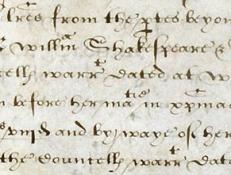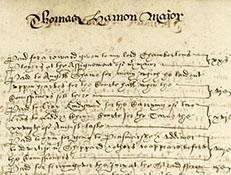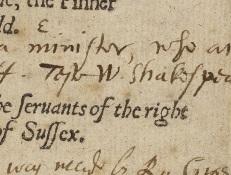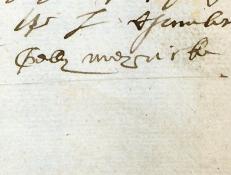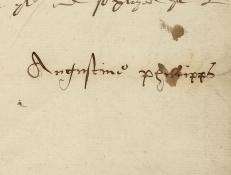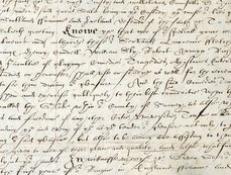Patronage of wealthy and noble individuals was highly desirable for writers and poets throughout the early modern period, but it was absolutely essential for players. Per the "Acte for the punishment of Vacabondes," issued in 1572, any group or individual who wished to travel and sell, perform, or otherwise purvey their goods or services needed to have the patronage of either two judges or one nobleman. As the law was revised and refined, only the highest of noblemen were allowed to provide patronage to acting troupes--this was partially a political move for the aristocracy of the time, but was extremely influential in the organization of professional groups of players. Elizabeth I was the first to form a troupe under the patronage of a sitting monarch in 1574, and James I (who was known for his patronage of artists, poets, and actors), was quick to make Shakespeare's theater company, the Lord Chamberlain’s Men, his own once he reached London in May 1603. At the time, the London theaters were closed due to the plague. When they reopened, his warrant decreed that the players were to perform “within their now usual house called the Globe” and throughout the country "for the recreation of our loving subjects" and for the king's "solace and pleasure when we shall think good to see them." Shakespeare and his fellows were now the King's Men.
The entrepreneur Philip Henslowe’s unique “Diary,” or account book, of his extensive theatrical enterprises records the titles of over 325 plays from 1592 to 1604, including two, perhaps three, plays written in part or whole by Shakespeare: Henry VI Part


